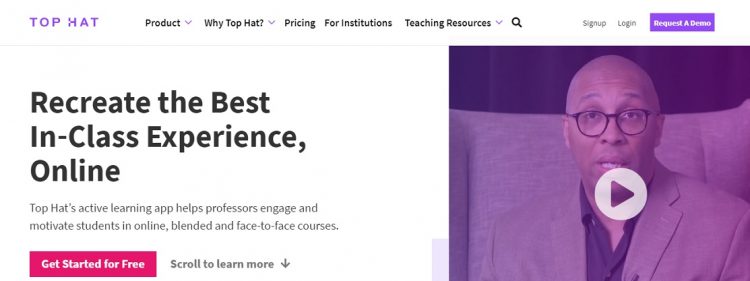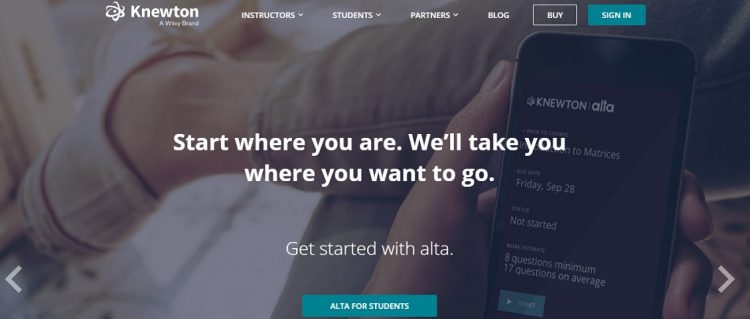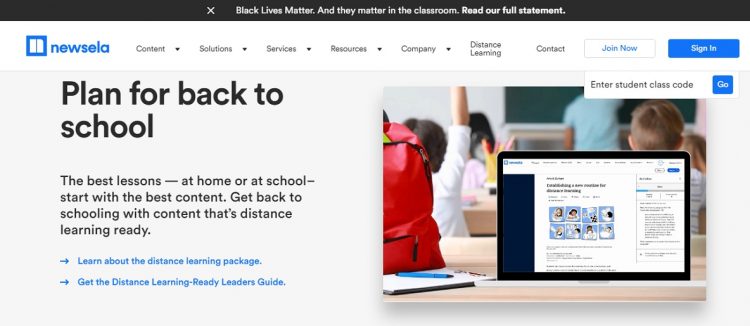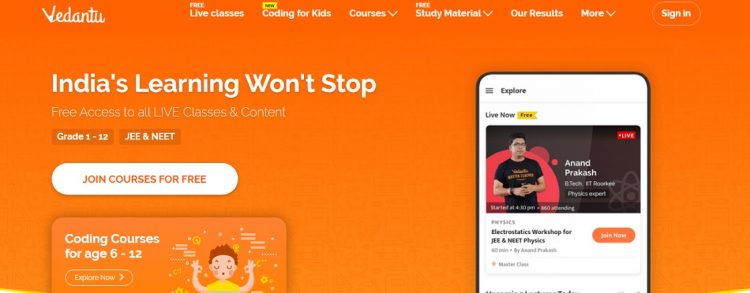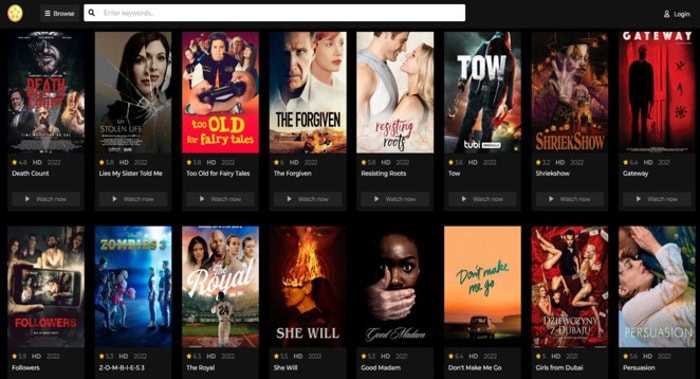
How does coronavirus affect you? – this Quora question has the majority of answers revolving around ‘education’. Both parents and high-school students themselves are describing the new normal in the education sector – online or remote learning.
Online learning through feature-rich online learning platforms emerged as a fun and safe learning experience during the pandemic. In fact, top universities like Harvard University, Rutgers University, Princeton University, and Georgetown University have already declared to take the majority of the classes remotely for an entire academic year.
Jaw-Dropping Facts About Online Learning
- According to Syngene Research, 2019, the global online learning market is expected to reach $336.9 billion by 2026 at the CAGR of 9.1%.
- Only in the USA, the online education market has grown to around $6 billion since 2017.
- Content-related online learning products are the most popular ones. It accounts for 59% in the US online education market.
- 52% of students who participated in the survey believed online education provides a better learning experience than classroom-education.
- Germany is leading Europe’s online education market with an annual growth rate of 8.5%.
- According to Technology for Education Consortium, investment in education technology has exceeded $13 billion in the USA.
- The learning experience platforms market already surpassed a $350 million mark.
- 67% of American college students use their mobile phones to access online classes.
Top Online Education Platforms’ Fee and Pros & Cons
The following is an in-depth analysis of the top 5 online education platforms.
1. SkillShare
The SkillShare is a USA-based online learning community. It targets people who want to learn from educational videos. Interested people can subscribe to SkillShare to get enrolled into courses. Unlike other platforms, it focuses on interaction rather than lecturing. It offers many courses in the subject category of creative arts, design, entrepreneurship, lifestyle, technology etc.
Platform Review:
Fee:
- The monthly package: $15 per month
- Annual plan: $8.25 per month or $99 per year (billed annually)
Pros:
- 30-Day Free Trial
- Extensive High-Quality Courses
- Affordable Pricing
Cons:
- Poor Search Results and Search Menu UI
- Varied Quality and Teaching Style
- Less Number of Business Classes
Company Analysis:
Founders: Malcolm Ong, Michael Karnjanaprakorn
Founded Year: 2010
Headquarter: Greater New York Area
Number of Funding Rounds – 7
Total Funding Amount: $50.8 Million
Lead Investors:
- Amasia
- Spark Capital
- Omidyar Network
- Union Square Ventures
2. Top Hat
Top Hat is a Toronto-based EdTech startup that has recently launched a new communication tool named Slate for students and institutes to easily communicate and collaborate. Top products of the Top Hat include Engaging Classes, Interactive Readings, Built-In Assessments, Remote Tests, and Actionable Insights.
Platform Review:
Fee:
- Free for Professors.
- Students need to pay $30 for 1 term (4 months) or $48 for 1 Year.
Pros:
- User-Friendly and Device Friendly
- Great App
- A Complete Learning Experience
- Low Learning Curve
Cons:
- No Free Trial
- Average Customer Service
- Lack of Extensive Customization Options
Company Analysis:
Founders: Mike Silagadze, Mohsen Shahini
Founded Year: 2009
Headquarter: Great Lakes
Number of Funding Rounds: 7
Total Funding Amount: $104.4 Million
Lead Investors:
- Inovia Capital
- Georgian Partners
- Leaders Fund
3. Knewton
Knewton is a NewYork-Based EdTech company focused on adaptive learning. To enhance the learning experience and outcome, the platform uses algorithms to personalize educational content delivery. It provides higher education in the field of science, technology, engineering and mathematics.
Platform Review:
Fee:
- Monthly Plan – $9.95 (Pay As You Go, Cancel Anytime)
- Single-Term Plan – $39.95 (Access A Single Course For Entire Semester)
Pros:
- Personalized Learning
- Great UI
- Mobile App
- More ‘Technical’ Courses
Cons:
- Limited Choices of Courses
- No Free Trial
Company Analysis:
Founder: Jose Ferreira
Founded Date: 2008
Headquarter: Greater New York Area
Number of Funding Round: 9
Total Funding Amount: $182.3 Million
Lead Investor:
TriplePoint Capital
4. Newsela
Newsela is another NewYork-based EdTech company enabling schools to cut costs while making sure to deliver enhanced learning experiences. To replace the traditional textbooks, it adds content from third-party publishers such as WikiHow, USA Today, The Washington Post, The New York Times. More than 20 million students and 1.8 million teachers are using Newsela.
Platform Review:
Fee:
- The basic version is free to use.
- Pro version costs about $6,000 per school, $2,000 per grade level, and $18 per student per year.
Pros:
- A Best-In-Class Library of High-Interest
- Cross-Curricular
- Adjustable Nonfiction Texts
Cons:
- Poor Search Results and Search Menu UI
- Previously Free Features are Now Paid Ones
Company Analysis
Founders: Matthew Gross, Dan Cogan – Drew
Founded Date: 2012
Headquarter: Greater New York Area
Number of Funding Round: 5
Total Funding Amount: $72.2 Million
Lead Investors:
- TCV
- Kleiner Perkins
5. Vedantu
Vedantu is an India-based interactive online learning platform. Using Vedantu, teachers can provide tuitions to students over the Internet. Vedantu built an in-house technology named WAVE (Whiteboard Audio Video Environment). Vedantu works on the marketplace model of the teachers. Meaning, it allows students to search for the teachers and choose a teacher to learn from him/her. Vedantu has 75000 paying subscribers and more than 25 million free users using its free version with limited capabilities.
Platform Review:
Fee:
- $1.4 for a single topic
- $700 for long-term undergraduate – level courses
Pros:
- Interactive Live Classes
- Post Live Doubts Solving
- Quiz
- Leaderboard System
Cons:
- Varied Quality and Teaching Style
- Lack of Pattern-Based Questions
- Simple Level of Questions
- Poor Customer Service
Company Analysis
Founders: Anand Prakash, Pulkit Jain, Saurabh Saxena, Vamsi Krishna
Founded Year: 2011
Headquarter: India
Number of Funding Rounds: 9
Total Funding Amount: $190.9 Million
Lead Investors:
- Coatue Management
- KB Global Platform Fund
- GGV Capital
In the Nutshell:
Online education is the buzzword. Neither parents nor institutes are looking forward to in-room coaching due to COVID-19. As if this is not enough, the advantages of online learning are surpassing the advantages of in-room learning dramatically. A lot of new EdTech startups are popping up and many are reporting huge funding. In such a competitive market, it is a challenge for students or parents to select the best online learning platform. In this blog, I have shared the pricing and pros & cons of the top 5 online learning platforms. I hope this will help you make a wise decision to be wiser and intelligent by getting education using the right platform!
About the Author:
Parth Patel is a serial entrepreneur and CEO of SyS Creations – a leading managed IT services and mobile app development firm. Operating the IT Infrastructure of Healthcare SMEs and startups keeps him on his toes and his passion for helping others keeps him motivated.

